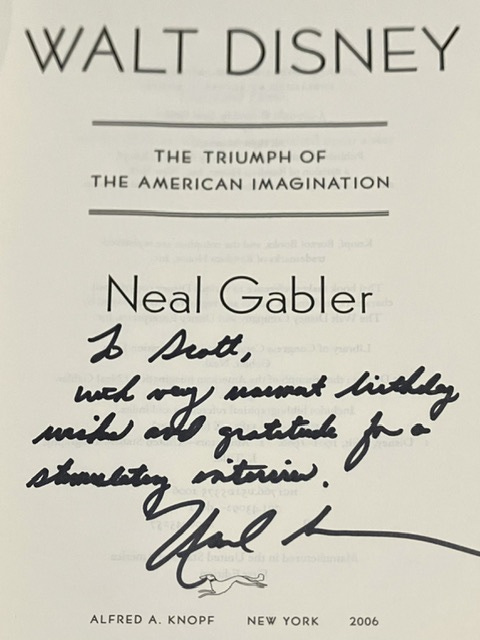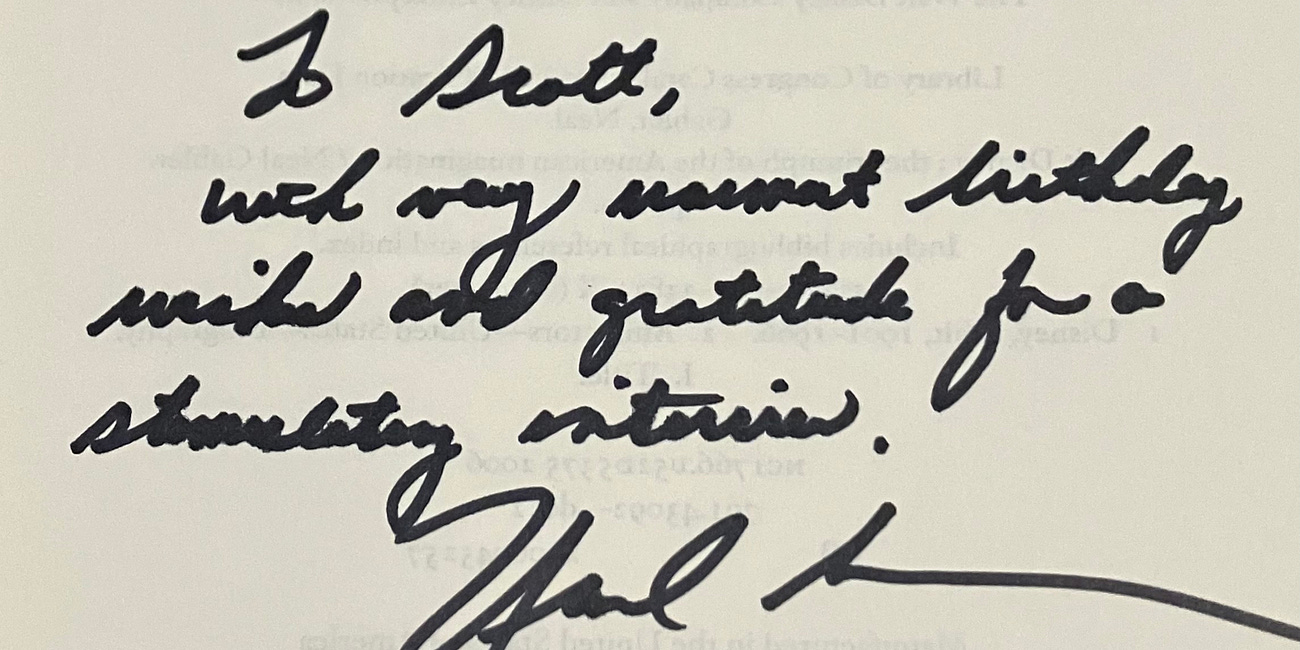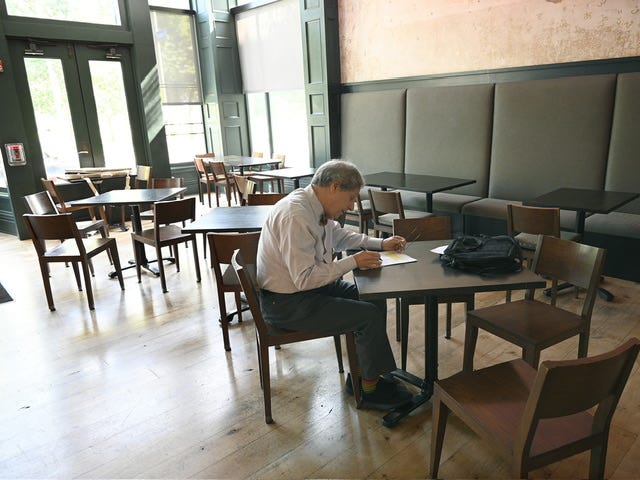Strictly speaking, I am not a news reporter, though I do report the news. But, when I have and do—throughout my three decades of journalism—I tend to write in extremely focused detail about certain issues, history and themes. This approach has led to some of my most commercially successful writing (which isn’t saying much—I add this because it’s true). Fidelity to investigating, learning and reporting the truth drives my news journalism, from being the impetus for my articles about the crash of TWA 800 to my award-winning article about Roberto Clemente, which casts Clemente’s purported altruism and presumed martyrdom into doubt.
My earliest writing, “The Devil and Other Stories,” is fiction. My first adult assignments were cultural commentary. Other writing includes my first paid journalism—a front page feature on the 50th anniversary of The Fountainhead by Ayn Rand—and writing for advertising, as well as commercial writing for private clients. However, in journalism, I’ve had and have the privilege of covering news.
One of my first news assignments involves the story of a bullet. I had discovered an inventor at a coffee shop who kept talking about his invention, for which he had applied for a patent. He often sat at the coffee shop’s counter next to the cash register—there was a time when customers brought the check to a cash register to pay the bill—and he’d go on about his newest inventions to anyone who’d listen. Paying customers at the register were a captive audience. I’d always judged people who went on about their notions as having potential value. I always engaged and listened to the loquacious inventor. When an editor asked if I had news, I proposed writing about his invention: a bullet which could be traced to a number.
The proprietary nature of the invention was complicated. I sought to break it down to basic facts. The article was printed on the front page. As I recall, the inventor eventually obtained a patent. A link to my front page newspaper article was cited and included in the patent application. This would not be the first time that my news (and other) writing set off a chain reaction which ended in a certain, concrete result. I also wrote or co-wrote various front page and cover newspaper reports about an earthquake, the debut of the Hollywood Bowl’s annual season and Southern California’s exorbitant real estate.
My most prominent front page newspaper article was an exclusive report from Miami, Florida, about meeting and interviewing a child refugee from Communism seeking asylum from Cuba in America. This was national news. The story was published in the Los Angeles Daily News among other major newspapers across the nation. That report afforded me an opportunity to write commentary as well, which I’d done with selected news, such as First Lady Barbara Bush delivering a commencement address at Wellesley, which I criticized. I also wrote about the 1992 Los Angeles riots—my essay was later reprinted in a textbook—the 1994 Northridge earthquake, the 1995 trial of O.J. Simpson, Colin Powell’s 1998 national service crusade and other news.

Besides commentary, features and news, I wrote news interviews, too, including one with James Rogan, an incumbent congressman and former judge who would lead the impeachment of President Clinton, and his political opponent, Democrat Adam Schiff, who would lead the impeachment of President Trump. I interviewed William Simon, Jr., during his campaign to become California’s governor. My interview was excerpted and widely reported across the newswire. An interview with Texas Governor George W. Bush was cited on NBC’s Meet the Press during the 2000 presidential campaign. My interview in Silicon Valley with Tom Campbell, who was challenging incumbent Dianne Feinstein for the U.S. Senate, also made news.
These news interviews were conducted in person. For years, I wrote commercial real estate, medical and trade, business and economic reports for the Los Angeles Business Journal, the San Jose Business Journal and other newspapers, magazines and journals. I reported on the 2000 national political conventions for the Buffalo News, Daily News of LA, Philadelphia Inquirer, San Jose Mercury News and San Francisco Chronicle.
Six years of reporting encompasses my first self-published paid subscription writing—an e-mail newsletter, the Concord Crier, which focused on news of surveillance statism and Islamic terrorist threats following Black Tuesday in 2001—including breaking news. It’s in the Crier that I first wrote about my exclusive discovery of information I sought and investigated about Saudi Arabians (including one of the hijackers) traced to planning the September 11, 2001 act of war. To this day, to my knowledge, no one investigated, disclosed or reported this untold story, which I pitched without success to major news outlets including Newsweek, the Washington Post and CNN.
Some of my news-based writing was derailed. An exclusive review of a book by Barack Obama during the historic 2008 presidential campaign went unpublished when the editor and publisher of the publication, which had assigned the article, backed out of the deal after he read my review and deemed it too positive. Other news-related writing and reporting includes a regular column on a motion picture industry website which debuted in 2007, continuing for two years, featuring movie news including an exclusive report on Lionsgate’s plans to adapt Ayn Rand’s Atlas Shrugged as a movie starring Angelina Jolie in the lead.
I wrote a series of Chicagoland histories, an exclusive interview for a magazine cover story about Phil Donahue and a report for the Los Angeles Times on a hearing about Katy Perry’s proposed purchase of property owned by the Catholic Church, which was being halted by nuns. I’m proud of the front page Sunday newspaper analysis—decades before fracking and those who defend capitalism in energy emerged—I was asked to write for the Detroit News about so-called energy conservation.
My medical writing consists of articles about a variety of policy and practice news. I profiled a plastic surgeon, interviewed bank presidents and CEOs about Health Savings Accounts (HSAs) and wrote front page interviews—with a besieged hospital president under fire for rejecting health care as a right, a Silicon Valley businessman and the head of a striking nurse’s union—for the Los Angeles Times. I was hired and assigned by the Detroit News to cover the dominant issue of 2000’s presidential race between Bush and Gore: state-subsidized drugs for old people. Some of my medical policy writing, such as my history of HMOs, is cited and referenced in scholarly journals, papers and books.
On Autonomia, I’ve continued to practice the studious approach to covering news, on two major topics: the crusade by the Biden administration to subsidize a foreign state and wage proxy war with Russia over Ukraine and the August 12, 2022 assassination attempt on Salman Rushdie, marked for death by Iran’s dictator in 1989. This month I became the world’s first and only journalist to seek, meet and interview the Pittsburgher who tackled the religious assassin, saving Rushdie’s life, about his act of heroism, which I exclusively announced in an Autonomia podcast.
I was aware of news early in life, which fueled my insatiable curiosity and sharpened my critical thinking. Reporting news redounds to history’s first draft, as the saying goes, and I know that mine’s a slender thread. You can judge whether it’s a throughline of stories that add facts, context and knowledge of that which matters.
Related Articles
Thirty Years in the Press
Today begins my 30th year in journalism. The article (not headline) pictured above, the first writing for which I was paid with money, was my idea. It was published 30 years ago today, beginning a career in journalism which continues with Autonomia.
Thirty Years in the Press
Interviews have always been a major part of my journalism. From my articles for a school newspaper and an alternative press in Chicago to Autonomia, the interview is one of my most practiced, skilled and methodical formats. I possess a natural (and arguably inappropriate) curiosity in the company of stars, strangers and ordinary people. Even as a boy, i…









Congratulations on a great career.